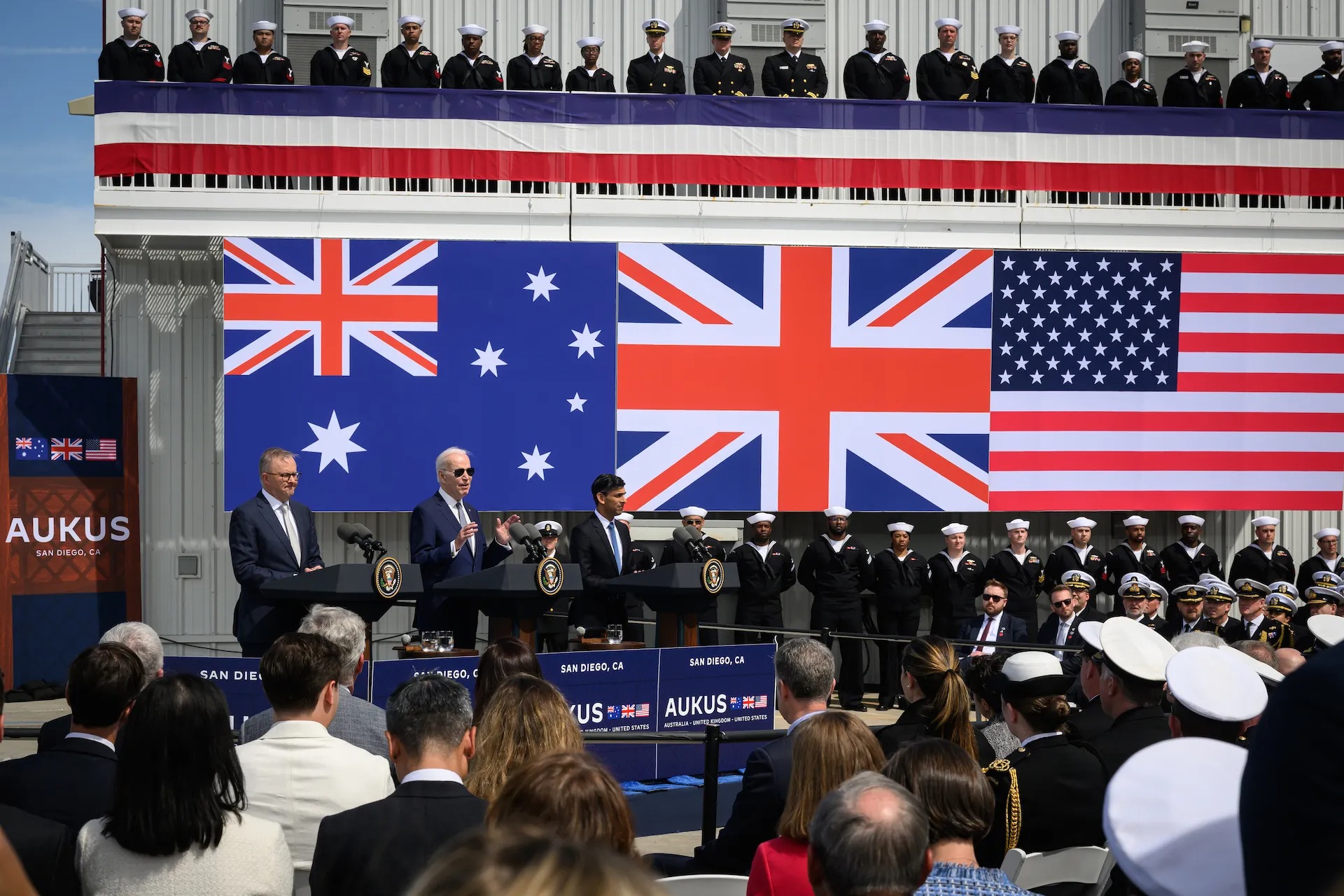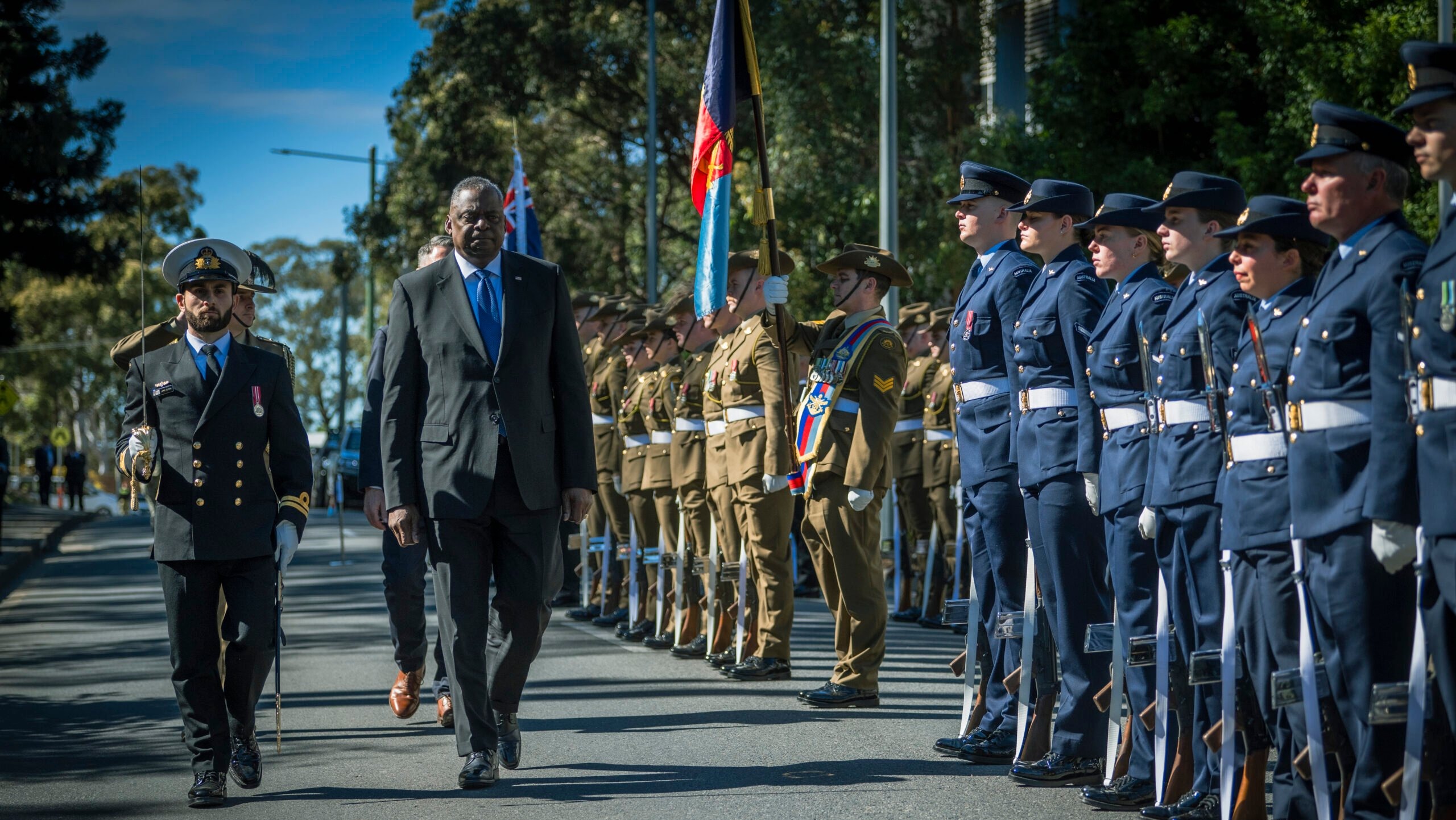Today, the Defense Innovation Unit (DIU) announced the initiation of the inaugural prize challenge among the AUKUS alliance countries, focusing on enhancing electromagnetic spectrum (EMS) capabilities.
This competition aims to identify companies that can contribute to advancing EMS technologies for both offensive and defensive military strategies.
The challenge emerges against an increasingly congested and competitive EMS environment, highlighting the importance of innovative technologies that could offer strategic advantages to the AUKUS nations and their allies.
In December, Defense Secretary Lloyd Austin and his British and Australian counterparts revealed plans for this international competition, aiming to bolster collaboration between the defense industries of the United States, the United Kingdom, and Australia.

Lloyd Austin (Credits: Breaking Defense)
This initiative forms part of the broader AUKUS security pact’s Pillar II, which is dedicated to technological advancement and cooperation. The competition focuses on enhancing capabilities in detecting, tracking, and engaging targets utilizing EMS technologies.
The DIU will orchestrate the challenge in the U.S., with parallel coordination by equivalent agencies in Australia and the United Kingdom. The selection of winning companies is scheduled for July, promising to spotlight innovations that could reshape battlefield strategies.
DIU Director Doug Beck emphasized the significance of allied collaboration in defense innovation, suggesting that a unified approach to developing new capabilities could foster a robust international defense ecosystem.
The AUKUS alliance also made headlines recently with advancements in Pillar I of the pact, which involves developing and delivering nuclear-powered submarines to Australia.

Trilateral AUKUS alliance (Credits: DefenseScoop)
A major development in this area was announced last week: Canberra committed $3 billion to support the UK’s research and development efforts in submarine technology.
This investment is expected to extremely benefit the UK’s defense sector, particularly Rolls-Royce in Derby, by facilitating a substantial expansion and creating over a thousand skilled jobs.
These state-of-the-art submarines will be constructed by BAE Systems in the UK and ASC in Australia, with the first deliveries anticipated in the late 2030s to early 2040s.
This ambitious project represents a crucial step forward in naval collaboration and defense preparedness for the AUKUS nations, underlining the strategic importance of the Indo-Pacific region in global security dynamics.























